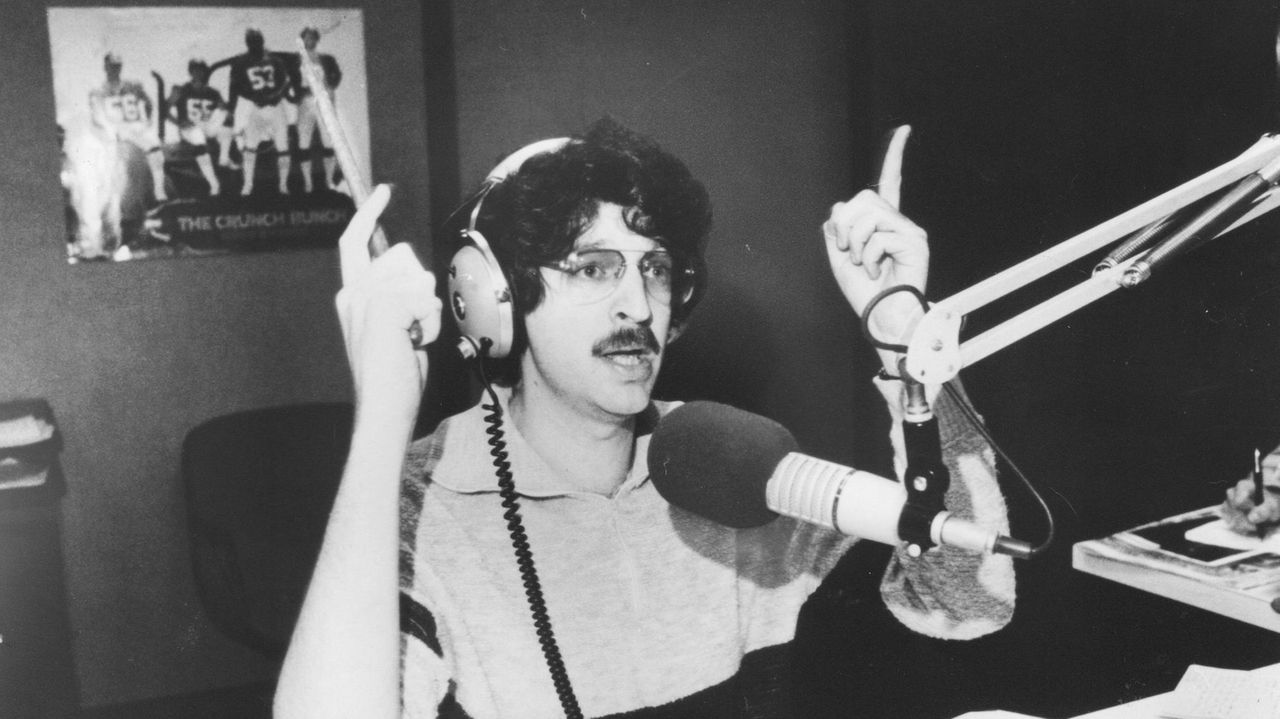The tall, lanky guy from Roosevelt was trouble. Everyone at WNBC/660 knew it, or should have. After all, the trouble had been hiding in plain sight.
On June 28, 1982, Howard Stern was fired by Washington’s WWDC, replaced by a pair of other shock jocks, the “Greaseman” (Doug Tracht) and “Adam Smasher” (Asher Benrubi). Termination was over what were to become the usual reasons: Slathering insults on management; unabridged talk about sexual and excretory dysfunction (his own); and an on-air stunt where he called an airline to inquire about the price of a one-way ticket to the 14th Street Bridge. (An Air Florida flight had crashed there the day before, killing 75.)
Nevertheless, Stern was a huge hit in D.C. He joined Double-u-NNNNNNNNN-b-c two months later, or the day after Labor Day. It was about to be deja-vu-all-over-again.
And then some.
This Tuesday, Stern returns to his SiriusXM show to reportedly discuss his future. Leaving or staying? Fired or re-upped? (Who knows?) But there was a time 40 years ago when the entire future of terrestrial radio seemed to hinge on Stern’s next move.
By the early ’80s, FM radio in New York had established its dominance, then near-omnipotence, with the 1983 launch of Z-100 (WHTZ/100.3) — Scott Shannon’s “Morning Zoo” — then LITE-FM (WLTW/106.7) the following year.
AM was fast receding into irrelevance while WNBC — born in 1922 — was in trouble. As Randy Bongarten, the station’s former GM (later president of the NBC radio stations) recalled in a recent interview, “This happened before I got there, but [morning host Don] Imus had a serious substance abuse issue, and Howard was brought in as insurance policy.” Imus, he says, was told that, which caused immediate friction between the station’s two biggest stars.
And thanks to his antics, Stern did the seemingly impossible: He made an AM radio station No. 1 in the New York market.
As Stern wrote in his 1993 memoir, “Private Parts,” when “Bongarten came [in 1983] he understood what I was doing. [Otherwise] these morons had no clue whatsoever, and tried to kill me from Day One.” Listen to a 1985 aircheck of Stern here.
Management, he wrote, handed him a set of rules which he had no intention of following: “No sketches related to personal tragedies, no slander, defamation or personal attacks, or jokes relating to sickness and death, sexual topics in a lascivious or scatological manner, or making fun of religious faith …”
The station’s program director, Kevin Metheny — whom Stern dubbed “Pig Virus” — was the appointed enforcer. (Metheny died in 2014). Stern wrote that his bosses’ directives were “like water torture” but “I somehow knew they would eventually be all be worn out dealing with me, just like my parents.”
They would not.
In “Private Parts,” Stern claims he got into a fistfight with another GM, while trying to force his way into his office during a live segment. “He started pushing me out of the office. I couldn’t believe it!”
Suspensions followed, first for an on-air skit on the Virgin Mary, later for one called “Das Love Boot” — Dr. Josef Mengele running the Love Boat. This all came to a head in 1985, with the skit “Bestiality Dial-a-Date,” and a long-running (and particularly scatological) riff on a fundraising campaign to restore the Statue of Liberty.
“What were they gonna do?” wrote Stern, then the top-rated host in New York. “Fire me?”
They did. On Sept. 30, 1985. The station cited “conceptual differences.”
Who actually fired Stern is unclear (even to Stern) although Bongarten says, “as far as I’m concerned” the order “came from [NBC chairman] Grant [Tinker]. Grant and the PR people were just not comfortable with Howard. It boiled down to an image issue for NBC and the impact it might have with NBC News, and the lobbying efforts that were taking place.” (RCA sold NBC to General Electric the year after Stern was sacked, for $6.4 billion.)
Bongarten says ” I had a lot of respect for Grant [who died in 2016] and he did wonders for NBC which he turned around, but radio was almost an afterthought at NBC at that time — a television company where radio was a legacy.”
On Nov. 18, 1985, Stern joined WXRK/92.3 (K-ROCK) where he became one of the most successful jocks in radio history. In 1987, GE sold the radio network and stations, including WNBC, which a year later became WFAN — and that station has done OK, too.
Bongarten says “This will go in the book I’m never going to write, but what I do know is that Grant had never actually listened to Howard’s show. After we fired Howard and he went to K-ROCK, Grant asked me to make a tape so he could hear him. I sent over the tape and he sent a note back a few days later: ‘Who would ever listen to this!'”
Verne Gay is Newsday’s TV writer and critic. He has covered the media business for more than 30 years.

